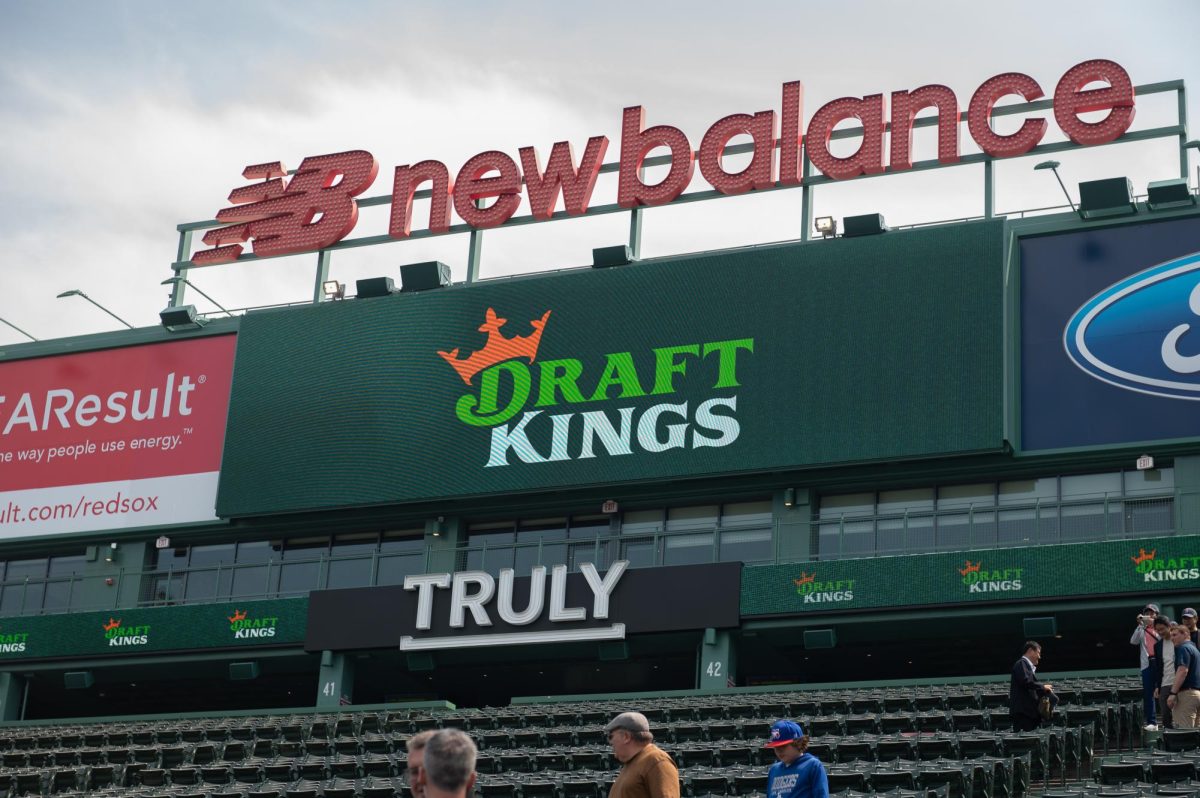The pervasiveness and accessibility of sports betting has never been as pronounced as it is today. A once-discreet and taboo activity has now evolved into an inescapable component of modern sports culture, fueled by leagues, teams and media partners eager to capitalize on its profitability.
Sports books have become nearly as ubiquitous as sports themselves. Betting is marketed as a fun, risk-free addition to the fan experience, disregarding the fact that the American Psychological Association officially classified gambling as an addiction in 2013. Yet, rather than being framed as a potential danger, sports betting has become a defining feature of modern fandom.
Betting companies overwhelm the viewing experience, and many teams and players serve as walking endorsements. Commercial breaks are flooded with gambling ads, often featuring multiple promos in a single break. This relentless promotion frames sports betting as an easy, exciting way to win money while cheering for your favorite teams.
The accessibility of sports gambling has also never been greater. With just a few taps on a phone, anyone can place bets on nearly any aspect of a game. Wagers can be made on anything from a coin toss in football to the speed of a first pitch in baseball. The convenience makes it easy to lose track of money, encouraging users to hemorrhage away countless dollars in the process.
The normalization of gambling in sports is creating a public health crisis of monumental proportions. In May 2018, the Supreme Court overturned a federal ban on sports betting. As of 2025, 38 states have legalized sports betting, and that number will only rise, given the state tax revenue it consistently generates.
The result is an industry profiting off people’s losses while pushing an activity that can destroy lives. It’s an industry that thrives on addiction, downplaying the potential mental health consequences with little regulation or oversight.
Young men in particular have become the primary target for sports gambling companies. A Siena College Research Institute poll found that nearly half of men in the U.S. between 18 and 49 years old have an active online sports betting account. This widespread exposure significantly increases the risk of gambling addiction in young adults, yet awareness about its dangers remains alarmingly low.
More needs to be done to highlight the risks associated with gambling, and restrictions should be placed on how and where it is advertised. As bettors spiral into addiction, they continue to chase their losses, believing they are one win away from recovering. It’s the responsibility of the leagues, athletes and broadcast networks to reconsider the partnerships made with betting companies. It is time for them to acknowledge that this isn’t just a business opportunity, it’s a growing public health emergency that demands action.
Sports should not be driven by a relentless pursuit of profit that exploits its targets with promises of quick and easy winnings. When gambling takes center stage, it diminishes the true spirit of fandom and turns every game into a source of anxiety and stress. The more we as a society ignore the dangers of widespread sports gambling, the deeper this crisis will grow, and its toll on mental health will only become more severe.


